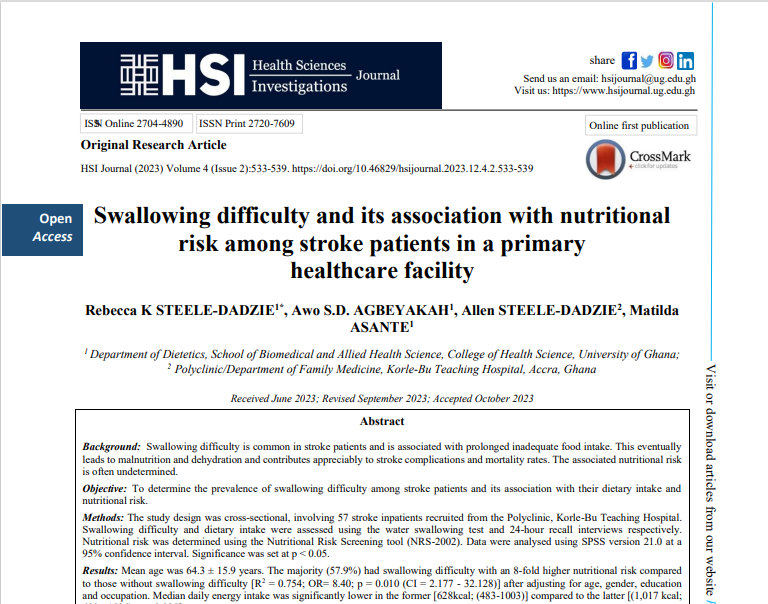Swallowing difficulty among stroke patients at a primary-care facility and its association with their nutritional risk
Swallowing difficulty and nutritional risk among stroke in-patients
Abstract
Background: Swallowing difficulty is common in stroke patients and is associated with prolonged inadequate food intake. This eventually leads to malnutrition and dehydration and contributes appreciably to stroke complications and mortality rates. The associated nutritional risk is often undetermined.
Objectives: To determine the prevalence of swallowing difficulty among stroke patients and its association with their dietary intake and nutritional risk.
Methods: Study design was cross sectional involving 57 stroke in-patients recruited from the Polyclinic, Korle-Bu Teaching Hospital. Swallowing difficulty and dietary intake were assessed using the water swallowing test and 24-hour recall interviews respectively. Nutritional risk was determined using the Nutritional Risk Screening tool (NRS-2002). Data was analysed using SPSS version 21.0 at a 95% confidence interval. Significance was set at p < 0.05.
Results: Mean age was 64.3 ± 15.9 years. Majority (57.9%) had swallowing difficulty with a 25-fold higher nutritional risk compared to those without swallowing difficulty [R2 =34.3%; OR= 25.3; p < 0.001 (CI= 4.97-128.72)]. Median daily energy intake was significantly lower in the former [628kcal; (483-1003)] compared to the latter [(1,017kcal; 600-1586); p = 0.025].
Conclusion: Over half of participants had swallowing difficulty with a significantly higher nutritional risk and lower daily energy intakes. Early routine assessment of nutritional risk, followed with timely appropriate interventions is strongly advocated as part of standard operating procedures for stroke management in primary care, to reduce stroke complications and mortality rates.


